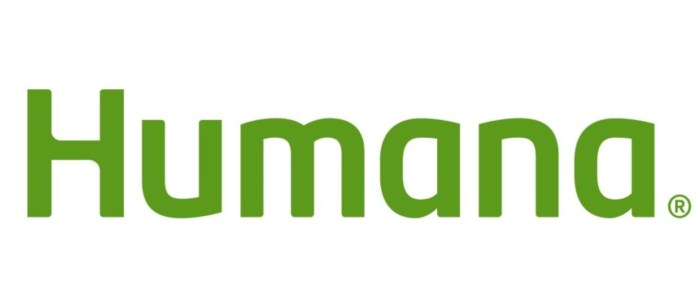Humana business health insurance sets the stage for this comprehensive exploration, offering a detailed look at the coverage and benefits available to businesses and their employees. Humana provides a range of plans designed to meet the diverse needs of organizations, from small businesses to large corporations.
Table of Contents
This guide delves into the intricacies of Humana’s business health insurance, examining the different plan options, coverage details, cost considerations, and administrative support. We’ll explore the extensive provider network, the emphasis on employee wellness programs, and the company’s commitment to compliance and innovation. By understanding the features and benefits of Humana’s offerings, businesses can make informed decisions about their employee health insurance needs.
Cost and Pricing
The cost of Humana business health insurance plans is influenced by various factors, including the size and demographics of your workforce, your business location, and the specific plan you choose. Understanding these factors is crucial for making informed decisions about your employee health insurance.
Factors Influencing Cost
The cost of Humana business health insurance is influenced by a variety of factors. These include:
- Employee Demographics: Factors such as age, gender, health status, and location of employees all play a role in determining the overall cost of insurance. For example, a company with a younger workforce might have lower premiums compared to a company with an older workforce.
- Location: The cost of healthcare services varies across different geographic locations. Businesses in areas with a higher cost of living, such as major cities, might expect higher premiums.
- Plan Type: Humana offers a range of plan types, each with its own coverage levels and cost structure. Choosing a plan with a higher deductible and lower monthly premium might be a cost-effective option for healthy employees, while a plan with lower deductibles and higher premiums might be better suited for employees with pre-existing conditions.
- Plan Features: The specific features and benefits included in your chosen plan can impact the cost. For example, plans with comprehensive coverage, including prescription drugs, vision care, and dental care, will typically have higher premiums than plans with more limited coverage.
Cost Components
Humana business health insurance plans are typically structured with the following cost components:
- Premiums: This is the monthly or annual cost of your health insurance plan. Premiums are usually paid by the employer, but they can be shared with employees.
- Deductibles: The amount you must pay out-of-pocket before your health insurance coverage kicks in. For example, if you have a $1,000 deductible, you’ll need to pay the first $1,000 in healthcare expenses yourself before your insurance starts covering the rest.
- Copayments: Fixed amounts you pay for specific services, such as doctor visits or prescription drugs. Copayments are usually a set dollar amount, regardless of the total cost of the service.
- Coinsurance: A percentage of the cost of healthcare services that you pay after you’ve met your deductible. For example, if you have a 20% coinsurance, you’ll pay 20% of the cost of your healthcare services after you’ve met your deductible, and your insurance will cover the remaining 80%.
Obtaining Quotes and Comparing Plans
Humana offers various resources for obtaining customized quotes and comparing plan options. You can:
- Contact a Humana representative: A Humana representative can provide you with personalized quotes and guidance on selecting the best plan for your business and employees.
- Use Humana’s online tools: Humana’s website offers tools for comparing plans, calculating estimated costs, and obtaining quotes online.
- Work with a broker: An independent insurance broker can help you compare plans from different insurers, including Humana, and find the best value for your business.
Employee Wellness Programs: Humana Business Health Insurance
Humana recognizes that healthy employees are essential to a thriving business. We offer a comprehensive suite of wellness programs designed to promote employee health and well-being, ultimately leading to a healthier workforce and a more productive environment. These programs are tailored to meet the diverse needs of our clients and their employees, providing valuable support and resources to improve overall health outcomes.
Benefits of Employee Wellness Programs
Investing in employee wellness programs offers numerous benefits for both employees and employers. For employees, these programs provide access to valuable resources and support, empowering them to take control of their health and well-being. This can lead to improved physical and mental health, increased energy levels, and a greater sense of overall well-being.
For employers, wellness programs offer a range of advantages, including:
- Reduced Healthcare Costs: By promoting healthy habits and early detection of health issues, wellness programs can help reduce healthcare costs associated with chronic conditions.
- Increased Productivity: Healthier employees tend to be more productive and engaged in their work. This can lead to improved performance and a more positive work environment.
- Reduced Absenteeism: Wellness programs can help reduce employee absenteeism by promoting healthy lifestyles and addressing potential health concerns proactively.
- Improved Employee Morale: Employees who feel supported in their health and well-being are more likely to be satisfied with their jobs and committed to their employer.
- Enhanced Employer Brand: Offering robust wellness programs can enhance an employer’s brand reputation, attracting and retaining top talent.
Types of Wellness Programs
Humana offers a variety of wellness programs to meet the unique needs of our clients. Here are some examples:
- Health Screenings: Regular health screenings, such as blood pressure checks, cholesterol tests, and diabetes screenings, can help identify potential health issues early on, allowing for timely intervention and prevention.
- Fitness Challenges: Engaging fitness challenges, such as step competitions or virtual races, encourage employees to adopt a more active lifestyle, promoting physical health and team building.
- Smoking Cessation Initiatives: Programs designed to help employees quit smoking can reduce the risk of developing smoking-related diseases and improve overall health.
- Nutrition Education: Providing workshops and resources on healthy eating habits can empower employees to make informed food choices and improve their dietary health.
- Stress Management Programs: Programs focused on stress management techniques, such as mindfulness meditation or yoga, can help employees cope with workplace stress and improve mental well-being.
- Financial Wellness Programs: Addressing financial stress can have a significant impact on overall well-being. Programs that provide financial literacy resources and tools can help employees manage their finances effectively.
Tailored Wellness Programs
Humana understands that each employer and employee population has unique needs and preferences. We offer a personalized approach to wellness program design, working closely with clients to develop customized programs that align with their specific goals and objectives. This ensures that the programs are relevant, engaging, and effective in promoting employee health and well-being.
Compliance and Regulations

Humana takes compliance with federal and state regulations governing health insurance seriously. Understanding and meeting these regulations is crucial for ensuring the company’s compliance and maintaining the trust of its customers.
Compliance with Federal and State Regulations
Compliance with federal and state regulations is essential for Humana to operate effectively and ethically. The company’s commitment to compliance ensures that it meets all legal requirements and provides its customers with the best possible service.
Examples of Relevant Regulations
Humana complies with a wide range of federal and state regulations, including the Affordable Care Act (ACA) and the Health Insurance Portability and Accountability Act (HIPAA).
Affordable Care Act (ACA)
The ACA, also known as Obamacare, is a comprehensive health care reform law that was enacted in 2010. It has significantly impacted the health insurance industry, and Humana is committed to complying with all of its provisions. Some key provisions of the ACA include:
- Guaranteed issue: This provision requires insurers to offer health insurance to all applicants, regardless of their health status.
- Essential health benefits: The ACA mandates that all health insurance plans must cover a set of essential health benefits, such as preventive care, hospitalization, and prescription drugs.
- Individual mandate: This provision required most Americans to have health insurance or pay a penalty. However, the individual mandate penalty was eliminated in 2019.
Health Insurance Portability and Accountability Act (HIPAA)
HIPAA is a federal law that sets standards for protecting sensitive patient health information, known as Protected Health Information (PHI). Humana is committed to protecting the privacy and security of its customers’ health information. Some key provisions of HIPAA include:
- Privacy Rule: This rule establishes standards for protecting PHI, including how it can be used and disclosed.
- Security Rule: This rule sets standards for protecting PHI from unauthorized access, use, or disclosure.
Importance of Understanding and Meeting Regulations
Understanding and meeting these regulations is crucial for Humana to operate effectively and ethically. By complying with these regulations, Humana ensures that it:
- Provides its customers with the best possible service.
- Protects the privacy and security of its customers’ health information.
- Maintains the trust of its customers.
- Avoids legal penalties and fines.
“Humana is committed to compliance with all applicable laws and regulations. We believe that compliance is essential to our success and to maintaining the trust of our customers.” – Humana’s Compliance Statement
Case Studies and Success Stories
Humana business health insurance plans have helped numerous businesses across various industries achieve significant improvements in employee health, reduce healthcare costs, and boost productivity. These success stories demonstrate the real-world impact of Humana’s comprehensive approach to employee well-being.
Benefits Achieved by Businesses
Humana’s business health insurance plans have enabled businesses to achieve tangible benefits, including:
- Improved Employee Health: By providing access to preventive care, wellness programs, and a wide network of healthcare providers, Humana helps businesses promote employee health and well-being. For example, a manufacturing company that implemented a Humana plan saw a 15% reduction in employee absenteeism due to illness, leading to increased productivity and reduced operational costs.
- Reduced Healthcare Costs: Humana’s plans offer cost-effective solutions through efficient claim processing, negotiated rates with healthcare providers, and a focus on preventive care. A technology company that switched to Humana reported a 10% decrease in healthcare costs over a three-year period, thanks to the plan’s comprehensive coverage and cost-containment strategies.
- Increased Productivity: Healthier employees are more productive employees. By investing in employee health, businesses can expect to see an increase in productivity and engagement. A retail chain that implemented a Humana plan witnessed a 5% increase in employee productivity, attributing the improvement to a healthier workforce with reduced absenteeism and increased energy levels.
Positive Employee Experiences
Employees who have benefited from Humana’s coverage and programs have shared their positive experiences, highlighting the value of the plan:
- Access to Quality Care: Employees appreciate the wide network of healthcare providers and the ease of access to quality care through Humana’s plan. One employee shared, “I was able to find a doctor within my network who was very knowledgeable and helpful in addressing my health concerns.”
- Wellness Programs and Resources: Humana’s wellness programs, such as fitness challenges and health education workshops, have helped employees adopt healthier habits and improve their overall well-being. An employee stated, “The wellness program helped me make healthier choices and lose weight. I feel much more energetic and confident now.”
- Excellent Customer Service: Employees value the responsive and helpful customer service provided by Humana. One employee commented, “I was impressed with the quick and efficient way Humana handled my claim. The customer service representative was very patient and helpful.”
Industry Trends and Innovations

The business health insurance industry is constantly evolving, driven by technological advancements, changing demographics, and evolving healthcare needs. Humana is actively adapting to these trends and innovating to provide cutting-edge solutions for employers and employees.
Telehealth and Virtual Care
The rise of telehealth has been a significant trend in recent years, accelerated by the COVID-19 pandemic. Telehealth provides convenient and accessible healthcare options, reducing the need for in-person visits. Humana has embraced telehealth, offering a wide range of virtual care services, including:
- Virtual doctor visits
- Mental health counseling
- Prescription refills
- Chronic disease management
These services provide employees with greater flexibility and convenience, while also reducing healthcare costs.
Personalized Medicine
Personalized medicine is another significant trend, focusing on tailoring healthcare treatments to an individual’s unique genetic makeup, lifestyle, and environmental factors. Humana is actively exploring and integrating personalized medicine approaches into its offerings, leveraging data analytics and genetic testing to:
- Identify potential health risks
- Develop personalized treatment plans
- Promote preventative care
By embracing personalized medicine, Humana aims to improve health outcomes and reduce healthcare costs.
Value-Based Care, Humana business health insurance
Value-based care is a healthcare delivery model that emphasizes quality over quantity, rewarding providers for achieving better health outcomes. Humana is a leader in value-based care, partnering with providers to:
- Improve patient engagement
- Coordinate care effectively
- Reduce unnecessary hospital readmissions
This approach aligns incentives with better health outcomes, ultimately leading to improved health and reduced healthcare costs.
Future Developments
The future of business health insurance is likely to be shaped by advancements in artificial intelligence (AI), wearable technology, and data analytics. AI can be used to personalize care, automate administrative tasks, and improve fraud detection. Wearable technology can monitor health metrics in real-time, providing valuable insights for preventative care. Data analytics can be used to identify trends and predict health risks, enabling proactive interventions. Humana is actively investing in these technologies to develop innovative solutions that will enhance the employee health experience and improve overall health outcomes.
Comparison with Competitors

Choosing the right business health insurance plan is crucial for any company, as it impacts employee well-being, productivity, and overall business success. Understanding the strengths and weaknesses of different providers, including Humana, is essential for making informed decisions. This section provides a comprehensive comparison of Humana’s offerings with those of other major players in the market, highlighting key factors to consider when selecting a provider.
Key Factors to Consider
When choosing a business health insurance provider, it’s important to evaluate various factors to ensure the plan meets your company’s needs and budget. Here are some key considerations:
- Network Coverage: This refers to the list of healthcare providers, hospitals, and pharmacies included in the plan. A wider network generally provides more choices and convenience for employees. Compare the network sizes and coverage areas of different providers to determine the best fit for your workforce’s location and healthcare preferences.
- Plan Options and Benefits: Different providers offer various plan options, including HMO, PPO, POS, and HDHPs, each with its own set of benefits, copayments, deductibles, and coverage levels. Consider the specific needs of your employees, such as preventive care, prescription drug coverage, mental health services, and specialized care, to choose a plan that offers adequate benefits.
- Pricing and Cost Transparency: Pricing is a crucial factor, especially for small businesses. Compare premiums, deductibles, copayments, and out-of-pocket costs across different providers. Transparency in pricing and clear explanations of plan costs are essential for making informed budget decisions.
- Customer Service and Support: Excellent customer service is vital for a smooth experience. Research providers’ reputation for responsiveness, accessibility, and ease of handling claims and inquiries. Consider the availability of online tools, mobile apps, and dedicated customer support channels.
- Employee Wellness Programs: Many providers offer programs designed to improve employee health and well-being, such as health screenings, wellness coaching, and fitness incentives. These programs can contribute to a healthier workforce and reduce healthcare costs in the long run. Evaluate the quality and comprehensiveness of wellness programs offered by different providers.
- Compliance and Regulations: Ensure that the provider complies with all relevant state and federal regulations, including the Affordable Care Act (ACA). This includes offering essential health benefits, protecting against discrimination, and providing transparency in plan information.
- Financial Stability and Reputation: Choose a provider with a solid financial track record and a positive reputation in the industry. This ensures the provider can meet its obligations and provide reliable coverage over the long term.
Comparison of Humana with Competitors
Humana is a well-established health insurance provider known for its extensive network and diverse plan options. However, it’s essential to compare Humana with other major players in the market to determine if it’s the best fit for your business.
Here’s a comparison of Humana with some key competitors:
| Provider | Strengths | Weaknesses |
|---|---|---|
| Humana | – Extensive network with a wide range of healthcare providers – Diverse plan options to cater to various needs – Strong focus on wellness programs – Excellent customer service and support |
– Higher premiums compared to some competitors – Limited availability in certain regions – Some plan options may have higher deductibles or copayments |
| UnitedHealthcare | – Largest health insurance provider in the US – Extensive network and broad geographic coverage – Wide range of plan options, including innovative offerings – Strong focus on technology and digital tools |
– Can be complex to navigate with multiple plan options – Some plans may have limited provider choices – Customer service can be inconsistent |
| Anthem | – Strong network and coverage in many regions – Offers a variety of plan options, including value-based care programs – Strong focus on quality and patient care |
– Premiums can be high in some areas – Network coverage can be limited in certain regions – Some plans may have restrictive coverage for certain services |
| Cigna | – Known for its strong focus on mental health and wellness – Offers innovative health management programs – Strong customer service and support |
– Network coverage can be limited in some regions – Premiums can be higher than some competitors – Some plans may have limited provider choices |
Remember, the best provider for your business will depend on your specific needs, budget, and employee demographics. Thorough research and comparison are crucial for making an informed decision.
Navigating the world of business health insurance can be complex, but with Humana, businesses have access to a comprehensive suite of solutions designed to enhance employee well-being and optimize healthcare outcomes. By understanding the key features, benefits, and administrative processes associated with Humana’s plans, businesses can confidently choose the right coverage for their workforce. From comprehensive medical benefits to robust wellness programs, Humana empowers businesses to prioritize the health and well-being of their most valuable asset: their employees.
Humana business health insurance offers comprehensive coverage for your employees, ensuring they have access to quality healthcare. However, it’s equally important to protect your business from potential financial risks. This is where simply business liability insurance comes in, providing financial protection against lawsuits and claims related to your business operations. By securing both health insurance and liability insurance, you can create a strong foundation for your business’s long-term success.


